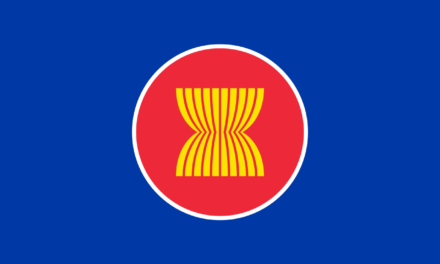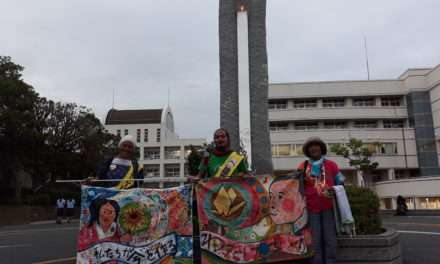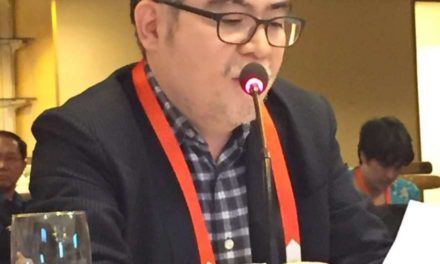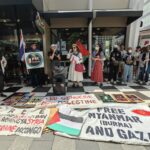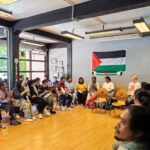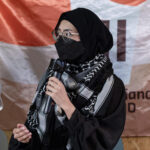By Herbert Docena
In 1947, the future of the Middle East stood before a vote at the United Nations General Assembly. The British empire had earlier expressed support for a Jewish “national home” in colonized Palestine, effectively promising to give away land they did not own. This promise was seized on by Zionists who had envisioned the creation in Palestine of an exclusively Jewish state, a project which drew more support following the Holocaust.
The only problem: Palestine, which Zionists describe as a “land without people for a people without land,” happened to have people.
On the table at the UN was Resolution 181, which – in proposing to partition Palestine between Arabs and Jews – effectively sought to legitimize settler-colonialism. Under the plan, the Jewish state was to be allocated 55% of the total land, even though the Jewish population at that time constituted only one-third of Palestine’s population and owned only 6% of the land.
Approved by the Zionists – who never made a secret of their plans to eventually expand their state – and rejected by Palestinians, the resolution was backed by the US and other colonial powers but opposed by many Arab and other formerly colonized countries. Lacking the required majority, the resolution stood on the verge of defeat – until three countries, pressured by the US, switched votes.
One of them was the Philippines.
Since then, Israel proceeded to invoke the resolution to justify its creation but has since defied its other provisions: In 1948, it seized more land through what even Israeli historians now agree to be a case of “ethnic cleansing,” expelling over 1.4 million Palestinians and defying UN resolutions to let them return. Then, in 1967, Israel conquered more land and evicted more Palestinians. Until now, what remains of Palestine – constituting only 22% of the original land that was to be partitioned and getting smaller as illegal Israeli settlements expand – remain under illegal Israeli occupation.
Through all this, the Philippines has been a complicit ally.
Itself a recipient of US military aid like Israel, the Philippines has for the most part followed the cue of the US in its unquestioning support of Israel’s policies. In 2006, as Israel subjected Lebanon – including Filipino workers – to collective punishment by aerial bombardment, the Philippines went along with the US in refusing to condemn Israeli aggression. At the UN Human Rights Council that month, the Philippines went against the majority in condemning Israeli operations.
Today, as Israel invades Gaza, the Philippines again refuses to speak out. In its view, what is happening is but an unfortunate contest between equally intransigent sides, as initiated by Hamas, rather than the latest instance of aggression by an occupying power against an occupied people.
This despite the fact that, contrary to the Israeli spin, it was Israel that yet again fired the first shot: As UN Special Rapporteur Richard Falk has pointed out, Hamas had been complying with the ceasefire which began in June 2006, and even offered to extend it. Israel, for its part, repeatedly undermined it by turning Gaza into a ghetto. To Hamas’ offer, Israel responded with air strikes. Then last November, Israel killed ten Palestinians, effectively ending the truce, and forcing Hamas to react.
The ensuing offensive has further undermined the only solution that could end Hamas’ largely ineffectual rocket fire – that of a just and peaceful settlement which the Palestinians have long sought, as evidenced by their willingness to accept the little that remains of Palestine for their own state existing alongside Israel, or if not that, of a single state in which all Jews and Arabs would have equal rights. It is a solution which more Israelis are also coming to embrace, but which Zionists continue to fear and reject.
What Israel is doing is therefore not self-defense but a continuation of the Zionist dream to solve the problem posed by Palestinians: If the so-called “land without people for a people without land” happens to have people, then the final solution is to get rid of those people.
As this solution is imposed, the Philippines can continue its complicity, just as it did in 1947 when it supported the disastrous UN partition. Or it could do something decent, just as it did in the 1940s when – even as most other countries turned away desperate Jews fleeing from the Holocaust – the Philippines opened its doors to them.
Today, as another people are subjected to mass murder, ordinary Filipinos should challenge the government’s complicity and take action. On this, UN General Assembly President Fr. Miguel Brockman has pointed to one concrete proposal: support the call – called for by Palestinians as well as peace-loving Israelis – for a global boycott, divestments, and sanctions campaign against Israel of the scale that ended apartheid in South Africa. Consumers should stop buying from companies that support Israel, Manila should cut its “sister-city” ties with Haifa, universities should stop inviting Zionist professors, cultural groups should not show Israeli films, and so on.
This campaign understandably raises a lot of questions but discussion is better than silence – the silence of those who look aside and of those who disappear.
*Herbert Docena ([email protected]) is with the Stop the War Coalition – Philippines. For more information on the Global Boycotts, Divestments, and Sanctions campaign, see www.bdsmovement.net

